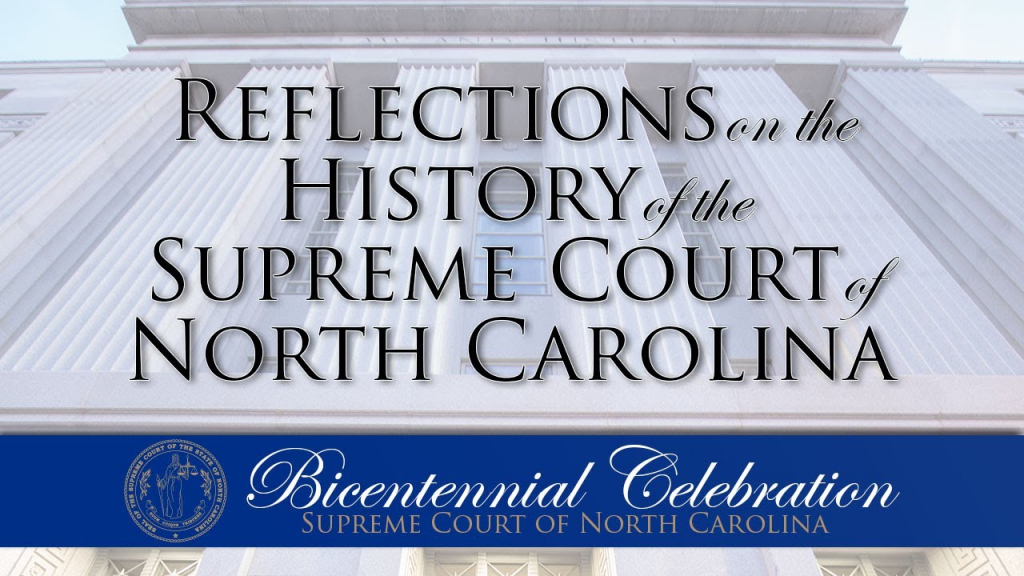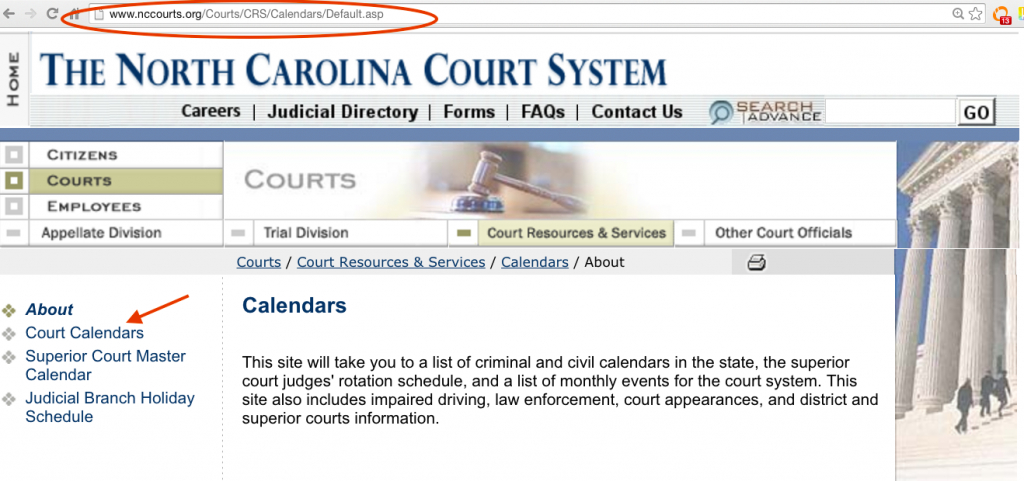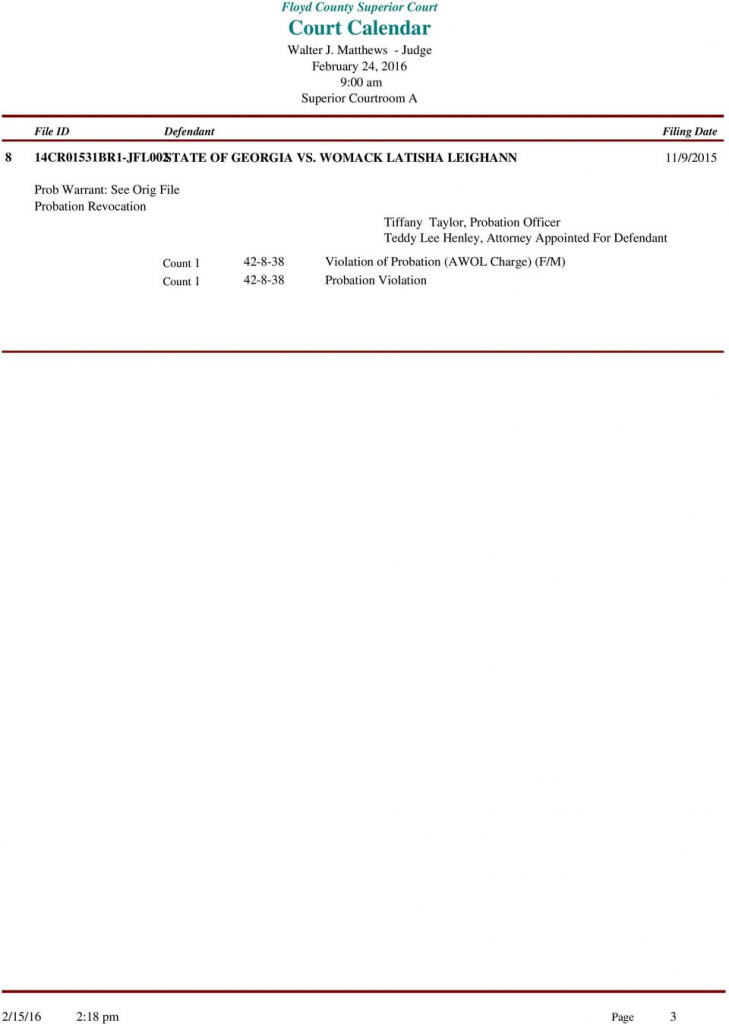Finding your court date in North Carolina can feel like a big puzzle, especially when you are looking at the vast amount of information for both District and Superior Courts. Many folks, whether they are involved in a case or just curious, often wonder how to track down specific details about upcoming court appearances. It is, you know, a very common question. Knowing where to look and what information you might need can save you a lot of time and, honestly, a lot of stress. This guide is here to help you get a better handle on how to use the available tools to find what you are looking for.
There are quite a few reasons someone might need to look up an NC court calendar for District and Superior courts. Perhaps you have a pending case, or you are supporting a friend or family member who does. Maybe you are an attorney trying to keep track of your schedule, or you are simply trying to get a clearer picture of how court proceedings work in our state. Whatever your reason, having reliable ways to access this public information is pretty important, as a matter of fact. It helps everyone stay informed and prepared for what is next.
This article will walk you through the ways to search for court dates, what kind of information you can expect to find, and some helpful tips to make your search a bit smoother. We will also touch on how you can get notifications for changes, which is a rather useful service for many. So, let us get into the details of how to access the NC court calendar for both District and Superior courts, making sure you have the knowledge you need.
- Understanding North Carolina Courts: District vs. Superior
- Accessing the NC Court Calendar: Your Search Options
- What You Can Expect to Find on the Calendar
- Staying Informed: Court Date Notifications
- Tips for a Smooth Court Calendar Search
- Preparing for Your Court Appearance
- Who Needs to Check These Calendars?
- Why Is This Information Public?
- Frequently Asked Questions About NC Court Calendars
- Conclusion
Before you start looking up dates, it helps to know a little bit about the two main types of trial courts in North Carolina: District Court and Superior Court. They handle different kinds of cases, so knowing which one applies to your situation is pretty important, as a matter of fact. This distinction guides where you will need to search for your information.
What is the District Court?
The District Court in North Carolina is where a lot of cases begin. It handles things like misdemeanors, infractions, traffic tickets, and civil cases where the amount of money involved is less than $25,000. Family matters, like divorce, child support, and custody, are also heard here. It is, you know, a very busy court, dealing with a wide range of everyday legal issues. There is no jury in District Court; a judge makes the decisions.
What is the Superior Court?
The Superior Court, on the other hand, deals with more serious matters. This is where you will find felony criminal cases, which are the more severe crimes. It also handles civil cases involving amounts greater than $25,000. Unlike District Court, Superior Court cases often involve a jury, especially for criminal trials. Appeals from District Court can sometimes also be heard here, too it's almost. So, it is, in some respects, the court for bigger, more complex legal situations.
The good news is that North Carolina provides online tools to help you find court dates for both District and Superior courts. These tools are designed to make the process as straightforward as possible, even though it can feel a little bit overwhelming at first. You have a few ways to search, depending on the information you already have available, that is. This flexibility helps many people get to the details they need.
Searching by Defendant Name
One of the most common ways people look up court dates is by the defendant’s name. This method is pretty simple if you know the first and last name of the person involved. The online search tool allows you to type in these names to view calendar dates that are pending. It is, you know, a very direct approach, and it works well for many users. You might also be able to narrow your search by county or court type, which is rather helpful.
For example, if you are looking for a case in Forsyth County, you would select that county, enter the defendant's name, choose either District or Superior Court, and then submit your query. This helps to filter the results and makes it easier to find the specific information you are after. It is a good way to start your search, especially if you have limited details about the case, actually.
Searching by Citation Number
If you have a citation number, that is often the quickest and most accurate way to find a court date. A citation number is a unique identifier for a specific ticket or charge. Using this number helps you go directly to the relevant case information without needing to sort through multiple names. It is, you know, a very efficient method for many. This is particularly useful for traffic infractions or minor criminal charges where a citation was issued.
The system allows you to search for criminal appearance dates in both Superior and District courts using this number. This means you can quickly see when and where a specific citation is scheduled to be heard. It is, in fact, a very precise way to get the exact information you are seeking. This method pretty much cuts down on any guesswork.
Searching by County and Court Type
Sometimes, you might not have a specific name or citation number, but you know the county and the type of court (District or Superior) you need to check. The online tools often let you browse calendars by these categories. This can be useful for attorneys who need to see a full day’s schedule for a particular courtroom, or for someone generally interested in the proceedings in a specific area. You can, for instance, jump to the calendars for a desired courtroom using special buttons, that is.
This approach gives you a broader view of what is happening in a specific court on a given day. It is, you know, a very good way to get a general sense of the court's activities. You might see a list of cases scheduled for that day, which can then help you spot the one you are interested in. It is, in some respects, a more general search, but still very effective.
Once you successfully search for a court date, the results will provide you with important details about the appearance. This information is designed to help you prepare and know exactly what is happening. Understanding these details is pretty important for anyone involved, as a matter of fact. It ensures you are not caught off guard by any aspect of the court proceeding.
Key Information on Court Calendars
When you look up a court date, you can expect to find several pieces of key information. This usually includes the date and time of the court appearance, the specific location (like the courtroom number), and details about the case itself. You will typically see the defendant's name, the case number, and the type of court (District or Superior). This information helps confirm you have found the right entry. It is, you know, a very clear way to get the basic facts.
For criminal cases, you will also see the specific charges or "arraigned offenses" that are part of the case. This gives you a clear picture of what the person is accused of. The search results are quite comprehensive, providing a good overview of the scheduled event. So, you can feel pretty confident that you are getting the full picture, at least for the appearance details.
Understanding Arraigned Offenses
The term "arraigned offenses" refers to the charges that have been formally presented in court. When you see this on a court calendar, it means the person has been told what they are accused of, and they have usually entered a plea, like guilty or not guilty. Knowing these offenses helps you understand the seriousness of the case and what legal issues are being addressed. It is, you know, a very important part of the court process.
This detail is particularly useful for those following criminal cases, as it clearly outlines the legal basis for the court appearance. It is, in fact, a key piece of information for anyone trying to grasp the nature of the proceedings. So, when you are looking at the calendar, paying attention to this section is a good idea.
Missing a court date can have serious consequences, so staying informed about any changes is absolutely crucial. North Carolina offers a service that can help you with this, which is pretty useful for many people. This service provides notifications about changes to court dates, which can be a real lifesaver. It is, you know, a very modern way to keep up with things.
You can subscribe to this service to receive notifications by text message or email for changes to court dates on criminal and infraction cases. This means if a date is moved, cancelled, or rescheduled, you will get an alert directly to your phone or inbox. The service also sends reminder messages for upcoming court dates for subscribed cases, which is rather helpful. It is, in some respects, like having a personal assistant for your court schedule.
This notification system is designed to reduce the chances of someone missing an important court appearance due to a scheduling change. It is, you know, a very proactive way to manage your court responsibilities. Utilizing this service can provide a lot of peace of mind, knowing that you will be alerted to any necessary updates, that is. It really makes a difference for many people.
Searching for court dates can be straightforward, but a few simple tips can make the process even smoother. These suggestions can help you avoid common frustrations and get to the information you need more quickly. It is, you know, a very good idea to keep these points in mind as you conduct your search.
Be Precise with Names
When searching by defendant name, accuracy is key. Make sure you spell the first and last names correctly. Even a small typo can result in no matches or incorrect results. If you are unsure of the exact spelling, try a few variations if the system allows, or consider searching by citation number if you have it. This precision really helps the system find the right information. It is, in fact, a very important detail for successful searching.
Know Your Court Type and County
As we discussed earlier, knowing whether the case is in District or Superior Court, and in which county, will significantly narrow down your search. Selecting the correct court type and county from the beginning saves you time and ensures you are looking at the right calendar. This information is pretty essential for focusing your search. It is, you know, a very basic, but very effective, filter.
Check Regularly
Court calendars can change. Dates might be continued, cases might be moved to different courtrooms, or new information might be added. If you have an important court date, it is a good idea to check the calendar regularly, perhaps a few days before the scheduled appearance, and again the day before. Better yet, sign up for the notification service mentioned earlier. Regular checks help you stay on top of any last-minute adjustments. It is, in some respects, a very smart habit to develop.
Once you have confirmed your court date, preparing for the appearance itself is the next step. Being ready can make a big difference in how smoothly things go. These tips are general suggestions to help you feel more prepared for your time in court. It is, you know, a very good idea to consider these points.
Arrive Early
Plan to arrive at the courthouse well before your scheduled time. This gives you plenty of time to find parking, go through security, locate the correct courtroom, and perhaps even speak with your attorney if needed. Courthouses can be busy places, and arriving early reduces stress. It is, in fact, a very simple way to start your court day on the right foot. You do not want to be rushing around, basically.
Dress Appropriately
While there is no strict dress code for spectators, if you are appearing before a judge, it is generally advised to dress in a way that shows respect for the court. This usually means neat, clean, and conservative clothing. Avoiding casual wear like shorts, tank tops, or overly revealing clothing is a good idea. This small detail can make a positive impression. It is, you know, a very common piece of advice for a reason.
Bring Necessary Documents
Make sure you bring any documents related to your case that you or your attorney might need. This could include citation copies, police reports, relevant correspondence, or any evidence you plan to present. Having everything organized and readily available can help your case proceed efficiently. It is, in some respects, about being prepared for anything that might come up. So, having your paperwork in order is pretty important, actually.
Many different people might find themselves needing to look at the NC court calendar for District and Superior courts. It is not just for those directly involved in a case. For instance, attorneys routinely check these calendars to manage their caseloads and prepare for upcoming appearances. They often need to see the full schedule for a particular courtroom or judge. This helps them stay organized and ready for their legal work. It is, you know, a very fundamental part of their daily routine.
Family members or close friends of someone with a court date might also want to look up the calendar. They might want to offer support by attending the hearing, or simply stay informed about the progress of a loved one's case. Knowing the date, time, and location helps them plan accordingly. It is, in fact, a very caring way to be present for someone during a difficult time. So, it is not just legal professionals who benefit from this access.
Additionally, journalists, researchers, and members of the public interested in the justice system might access these calendars. Court proceedings are generally open to the public, and these calendars provide a window into the daily workings of the courts. This transparency is a very important part of our legal system, that is. It allows for public oversight and understanding of how justice is administered. So, in a way, anyone with a general interest in legal matters might find themselves looking at these schedules.
The fact that NC court calendar district and superior information is publicly accessible is a cornerstone of our legal system. It is, you know, a very important principle that courts operate in the open. This idea, often called "open courts" or "public access to court records," means that court proceedings and many court documents are available for anyone to see. The main reason for this is to promote transparency and accountability within the justice system. When court actions are visible, it helps ensure fairness and prevents secret dealings. It is, in fact, a very fundamental aspect of how our democratic society functions.
Public access allows for public scrutiny of the judicial process. This means that citizens can observe how laws are applied and how justice is carried out. This oversight helps maintain trust in the courts and reduces the potential for corruption or bias. It is, in some respects, a check and balance on the legal system itself. So, by making court calendars available, the system aims to be as open and fair as possible. This commitment to transparency is a very significant part of North Carolina's legal framework, basically.



Detail Author:
- Name : Dr. Cordia Nolan
- Username : laney13
- Email : astreich@yahoo.com
- Birthdate : 1996-02-13
- Address : 38958 Swift Plaza Apt. 496 Port Patrickside, KS 10627
- Phone : (520) 942-4738
- Company : Carter LLC
- Job : Administrative Law Judge
- Bio : Quisquam illo nobis at unde. Error voluptates molestiae expedita fugit adipisci aut. Voluptate eum ipsum nam quo hic.
Socials
tiktok:
- url : https://tiktok.com/@carter1982
- username : carter1982
- bio : Sed fuga in recusandae voluptatem.
- followers : 6369
- following : 830
linkedin:
- url : https://linkedin.com/in/lance_carter
- username : lance_carter
- bio : Itaque eveniet laudantium illum voluptatem.
- followers : 3351
- following : 468
facebook:
- url : https://facebook.com/lance5955
- username : lance5955
- bio : Suscipit recusandae labore quo cumque voluptatum possimus.
- followers : 4055
- following : 2953